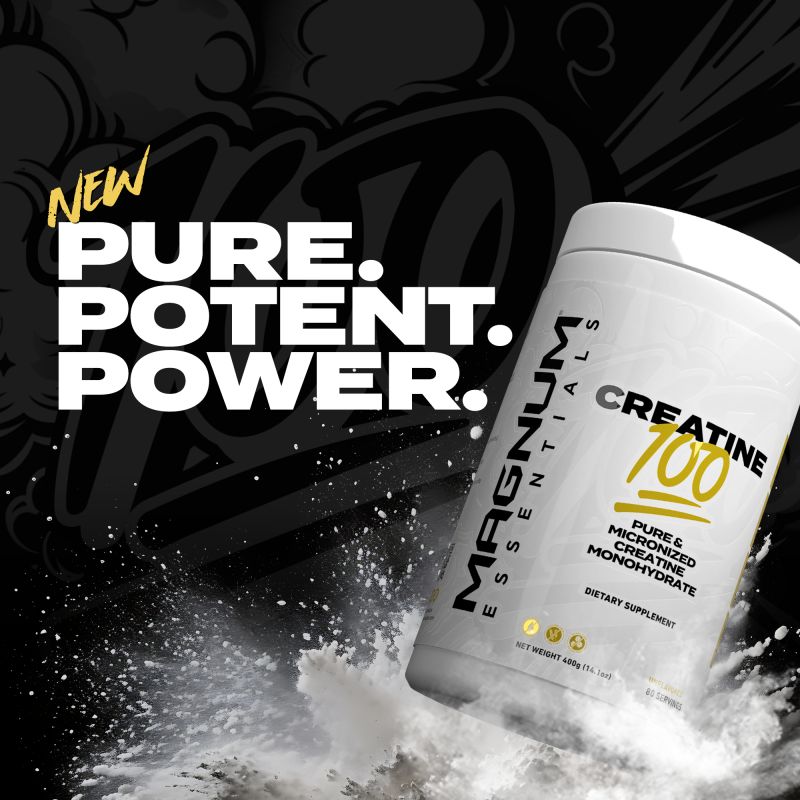
Creatine 101: What It Is, How It Works, and Why You Should Care
Share
If you’ve spent any time around fitness, you’ve probably heard of creatine. Whether you’re new to supplements or deep into your training journey, creatine is one of the most researched, effective, and misunderstood tools in the gym bag. Let’s break it down:
What Is Creatine?
Creatine is a naturally occurring compound found in small amounts in red meat and seafood—and it’s also produced by your body. It helps produce ATP (adenosine triphosphate), which is your muscle cells’ main source of energy for short, explosive movements like sprinting, jumping, and lifting weights.
What Does Creatine Do?
Supplementing with creatine allows your muscles to store more quick-acting energy, helping you:
-
Increase strength and power output
-
Build muscle faster
-
Improve performance during high-intensity training
-
Recover quicker between sets
In short: more energy = more reps = more results
Is Creatine Safe?
Yes—creatine is one of the most researched supplements on the planet, with decades of studies confirming its safety and effectiveness. It’s not a steroid, and it doesn’t mess with your hormones.
Some people experience mild water retention at first, but this usually evens out after your muscles are fully saturated.
Creatine for Women: What the New Research Shows
For a long time, creatine was marketed mostly to men, but that’s changing fast—and the science backs it up.
Recent research is showing that creatine offers powerful benefits for women, including:
-
Improved strength and muscle tone
-
Better recovery and workout performance
-
Cognitive support (especially during periods of high stress or hormonal shifts)
-
Potential support for mood and mental clarity during menstruation, pregnancy, postpartum, and even menopause
Because women naturally have lower creatine stores than men, they may actually benefit even more from supplementation—especially if training intensely or following a plant-based diet (where dietary creatine is low).
Who Should Take Creatine?
Anyone looking to improve:
-
Strength and muscle mass
-
Recovery and performance
-
Mental sharpness and overall energy
Whether you’re lifting heavy, training for a sport, staying lean, or just staying active—creatine belongs in your stack. And yes, women 100% should be taking it too.
How To Take Creatine
-
Dosage: 5g per day (every day)
-
Timing: Any time works, but post-workout may offer a slight edge
-
Loading Phase? Optional. Loading (20g/day for 5-7 days) gets you saturated faster, but you can also take 5g daily and let it build up over a few weeks.
Best Type of Creatine?
Stick with creatine monohydrate—it’s the most studied, most effective, and most affordable form. Don’t fall for overpriced gimmicks.
Final Thoughts
Creatine isn’t just for bodybuilders or gym bros. It’s for anyone looking to get stronger, feel better, and perform at their best—physically and mentally.
Men, women, beginners, pros—this supplement delivers.
If it’s not already part of your daily routine, now’s the time to change that.
Want help picking the best creatine or stacking it with other supplements? Come talk to us at 619 Muscle East—we’ll set you up with exactly what your body needs to perform at its best.